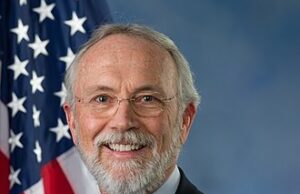ULI Offers Recommendations on Expanding the Supply of Affordable, Workforce, and Mixed-Income Housing Throughout the Dallas Metropolitan Area
WASHINGTON – May 18, 2016 – (RealEstateRama) — The continued evolution of Dallas into a thriving, world-class city could be significantly enhanced with a housing policy that encourages the development of inclusive, diverse neighborhoods offering housing to residents in a broad income range, according to the Urban Land Institute (ULI). ULI is a multidisciplinary research and education institute dedicated to responsible land use and creating thriving and sustainable communities worldwide.
The Institute’s recommendations for strategies to increase the supply of affordable, workforce, and mixed-income housing throughout Dallas and the metropolitan region are now available in a report prepared through ULI’s advisory services program. The recommendations were made by a panel of industry experts convened through the program to advise the City of Dallas on short- and long-term housing policy options that emphasize collaboration with surrounding jurisdictions.
The panel, which visited Dallas February 28-March 4, 2016, was chaired by renowned housing industry expert Tony M. Salazar, president of the West Coast Division of McCormack Baron Salazar, one of the nation’s most successful developers of affordable, workforce and mixed-income communities. “Across the country, cities have begun to make progress (in increasing the supply of affordable housing) through an array of approaches that reflect ambition and innovation,” Salazar said. “Dallas has the opportunity to take the best practices from around the United States, integrate them into a coherent whole, and bring to bear a unique can-do spirit and unsurpassed development capacity in ways that no other city has yet achieved. Making meaningful progress on affordable and mixed-income housing is another opportunity for Dallas to lead.”
Panelists considered factors such as the extent of demand for both rental and owner-occupied affordable and workforce housing; current and future needs for various product types and price points for a range of affordable, workforce and mixed-income housing types; barriers to providing affordable, mixed-income and assisted housing throughout the Dallas metro area; policies that have been effective in other areas of the U.S. similar to Dallas in terms of housing needs, capacity and the development environment; and determining who would assume a leadership role in encouraging the development of affordable and workforce housing, building consensus around the effort, and keeping the momentum going.
According to the report, the city’s efforts to expand affordable and mixed-income housing must be grounded in a set of core principles:
- Go big – Big thinking and bold action are required to make progress at the speed and scale necessary to strengthen the social fabric and economic competitiveness of the city.
- Go long-term – Dallas’s affordable and mixed-income housing needs will take a multi-year commitment to address at the scale required; the time horizon will extend beyond political terms and agency appointments.
- Go regional – Dallas’s housing market is regional, and some of the city’s housing challenges have in fact resulted from restrictive policies adopted by surrounding jurisdictions. As a result, a new policy must reflect approaches that will be applied regionally.
- Go sustainable – Adopt a policy that is sustainable from a financial and environmental standpoint. From a financial standpoint, the policy should seek substantial commitments of public, private and philanthropic capital; from an environmental standpoint, the policy should prioritize siting, construction and management practices that are environmentally sustainable.
Based on these principles, the panel made five recommendations for a new housing policy:
- Create a permanent, dedicated revenue source – Establish a housing trust fund to receive and allocate new sources of revenue for affordable and mixed-income housing development and preservation.
- Create an inventive-based inclusionary housing program with flexibility for the development community – Implement a program to insure that residential development proposals include a defined percentage of affordable units, and that the units would be built in a prospering area; or that developers not providing these units pay “in lieu” to the housing trust fund.
- Leverage public and anchor institution real estate assets – Take advantage of the legal authority granted to the city to sell land it owns at below fair market value if it will be used for a public purpose, which can include affordable housing. This should include developing a database of all the city’s real estate holdings, assessing the development potential of each property, and prioritize those in stable and high-opportunity areas for affordable and workforce housing development.
- Support housing choices and opportunities for all Dallas residents – Focus on removing or alleviating barriers that are preventing low-income and minority families from accessing housing in mixed-income developments and neighborhoods.
- Invest strategically in community revitalization – Dallas should identify and invest in a comprehensive set of resources for disinvested communities, using criteria based on the existence of conditions, capacity, and community-serving institutions that suggest a high likelihood for the communities to be transformed into catalysts for investment and development.
Successful implementation of the recommendations will require the appointment by the mayor and city council of a “highly respected local leader to organize the effort…and serve in the temporary role of chief executive officer for housing and community investment” the report says. “The city’s broader housing challenges – especially the need for more mixed-income housing – demand a sense of urgency…and the panel believes that only an independent community leader will be able to lead this necessary change process for Dallas…More broadly, the panel believes that Dallas’s success in implementing the proposed recommendations will depend on working with the private sector and community-based organizations outside the city government…Nonprofit developers and advocates are also equally important to making these recommendations work.”
In addition to Salazar, other panelists were: G. Kent Collins, principal, Centro Development, LLC, Austin, Texas; Nancy Montoya, principal, TTA, New Orleans; Dionne Nelson, principal and chief executive officer, Laurel Street Residential, Charlotte, North Carolina; Phil Payne, principal and chief executive officer, Ginkgo Residential, Charlotte; Meaghan Shannon-Vlkovic, vice president and market leader, Enterprise Community Partners, Atlanta; Mark Shelburne, senior manager, Novogradac and Company LLP, Raleigh, North Carolina; Jake Wegmann, assistant professor, School of Architecture, the University of Texas at Austin; Austin; Roger L. Williams, principal, RW and Associates, LLC, Potomac, Maryland; and Stockton Williams, executive director, ULI Terwilliger Center for Housing, Washington, D.C.
Now in its 69th year, the ULI advisory services panel program assembles experts in the fields of real estate and land use planning to participate on panels worldwide, offering recommendations for complex planning and development projects, programs and policies. The program has offered recommendations on urban growth-related issues in Dallas and the metropolitan region on several occasions over the past 25 years, including a revitalization strategy for West Dallas in 1990; redevelopment of the Oak Cliff Gateway District in 2001; a strategy for new development in Frisco in 2004; development of a regional logistics hub in Southern Dallas County in 2006; a reuse plan for Southwest Center Mall in 2009; and a development strategy for Vitruvian Park in Addison in 2011.
About the Urban Land Institute
The Urban Land Institute is a nonprofit education and research institute supported by its members. Its mission is to provide leadership in the responsible use of land and in creating and sustaining thriving communities worldwide. Established in 1936, the institute has more than 38,000 members worldwide representing all aspects of land use and development disciplines. For more information, please visit uli.org or follow us on Twitter, Facebook, LinkedIn, and Instagram.
contact: Trisha Riggs at 202-624-7086













